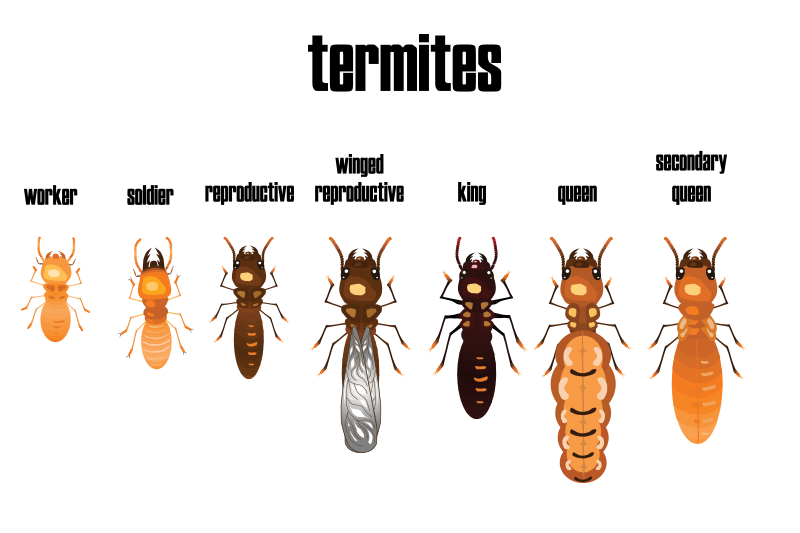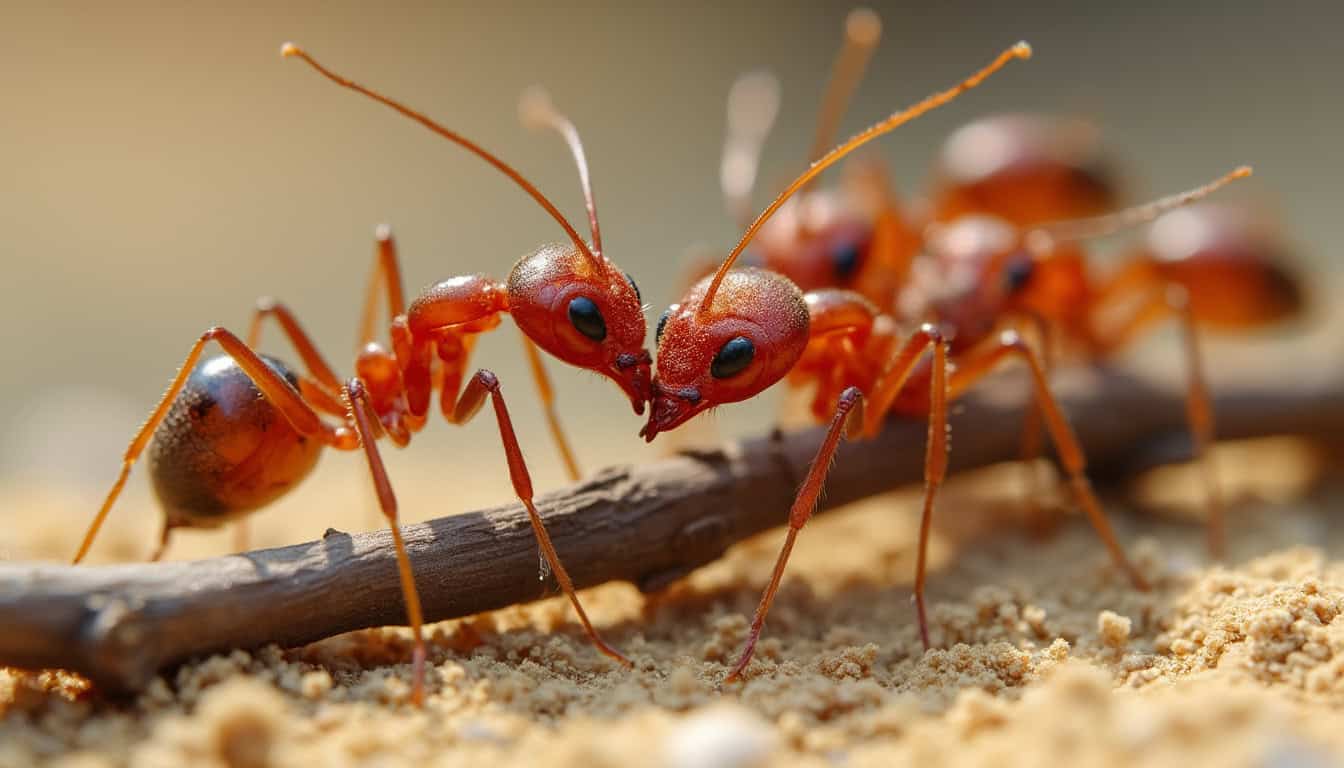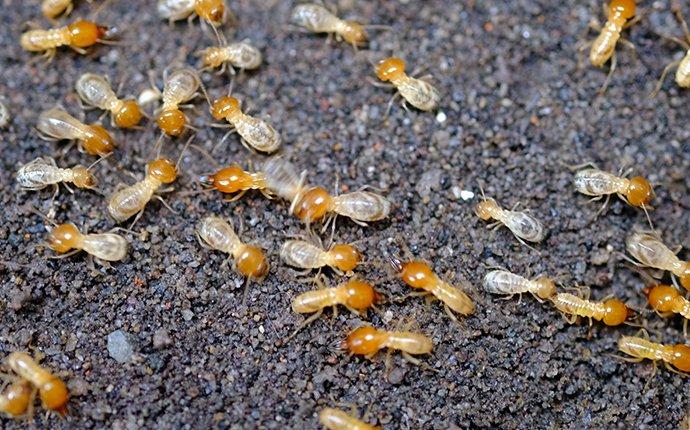Leading Ant Control Services: Dependable Solutions for Your Home or Organization
Leading Ant Control Services: Dependable Solutions for Your Home or Organization
Blog Article
Ecological Influence of Bug Control: Balancing Performance With Sustainability
The ecological effect of bug control is a crucial concern that needs a delicate equilibrium between achieving performance in ensuring and taking care of bugs sustainability of our environments. As we strive to shield our crops, homes, and health from the threats presented by pests, the techniques we employ can accidentally hurt the environment. From the usage of damaging chemicals that seep into our dirt and water to the unexpected consequences on non-target types, the repercussions of traditional parasite control methods are far-reaching. Nonetheless, there are emerging approaches that use hope for an extra sustainable technique to pest monitoring. These remedies not only goal to address the instant bug troubles but also think about the lasting health and wellness of our planet.
Harmful Chemicals in Bug Control
The use of dangerous chemicals in bug control presents considerable ecological and health and wellness dangers that require careful consideration and reduction strategies. Herbicides, insecticides, and chemicals are generally utilized to remove insects, but their prevalent application can bring about unexpected consequences. These chemicals can pollute soil, water resources, and the air, affecting not just the targeted bugs but additionally beneficial bugs, wildlife, and human beings.

To attend to these threats, incorporated insect administration (IPM) methods are being promoted as a more lasting choice. IPM includes a mix of methods such as organic control, habitat adjustment, and the targeted use pesticides as a last hope (ant control faquay varina nc). By adopting an all natural technique to pest control, we can decrease the environmental and wellness effects associated with hazardous chemicals while effectively managing pest populaces
Influence On Non-Target Variety
Thinking about the unintentional effects of parasite control approaches, the effect on non-target species is a crucial facet that requires thorough assessment. While pest control procedures aim to target certain pests, various other microorganisms in the environment might be unintentionally influenced. Non-target species, consisting of useful insects, birds, creatures, and even plants, can experience straight or indirect harm from pesticide applications or organic control methods.
Pesticides designed to fight a specific bug bug might hurt pollinators like bees or natural predators such as ladybugs. Organic control agents, if not species-specific, can posture risks to unexpected targets, interfering with the ecological equilibrium.
To mitigate the influence on non-target species, integrated bug monitoring (IPM) techniques that stress an all natural method to pest control are recommended. These methods prioritize making use of eco friendly methods, reducing harm to valuable microorganisms while effectively taking care of pest populaces. Carrying out detailed risk evaluations and keeping an eye on the results of pest control initiatives are necessary actions in securing non-target species and advertising general community wellness.
Dirt and Water Contamination
Unplanned environmental repercussions of parasite control methods prolong past impacting non-target types, with substantial implications for soil and water contamination - ant control. Pesticides, herbicides, and chemical plant foods made use of in pest control can leach into the soil and pollute groundwater, posturing a threat to both water and earthbound ecological communities.
Water contamination is one more crucial concern associated with parasite control techniques. To alleviate soil and water contamination from insect control activities, integrated insect management strategies that focus on sustainability and reduce chemical inputs are important.
Air Pollution From Pesticide Use
Direct exposure to airborne pesticides throughout agricultural applications poses a significant concern for air pollution control actions. They can volatilize into the air and type unpredictable organic substances (VOCs) and various other air-borne contaminants when chemicals are sprayed onto plants - ant control services. These chemicals can contribute to the development of ground-level ozone, a major component of smoke that can have damaging effects on human wellness, crop efficiency, and overall air high quality. Furthermore, pesticide drift, where chemicals are carried by the wind to unplanned areas, can result in the contamination of nearby ecological communities and water bodies.

Approaches for Sustainable Bug Control
In the world of agricultural practices, applying sustainable bug control strategies is critical for preserving eco-friendly equilibrium and guarding plant yields. Lasting parasite control highlights making use of eco-friendly techniques to take care of bug populaces properly while decreasing damage to non-target organisms and environments. Integrated Look At This Insect Administration (IPM) is a commonly taken on approach that integrates organic, social, physical, and chemical control approaches to attain long-lasting bug management remedies.
One key technique in sustainable pest control is advertising biodiversity within agroecosystems. By boosting natural enemies of pests, such as killers and parasitoids, farmers can minimize the need for artificial chemicals. Crop rotation and diversity are likewise effective strategies to interfere with pest life cycles and develop less desirable conditions for pests to grow. In addition, making use of pest-resistant plant varieties and using methods like trap chopping can assist reduce bug stress without relying greatly on chemical interventions. Inevitably, by integrating these sustainable bug control strategies, farmers can accomplish a balance in between pest management performance and environmental stewardship.
Final Thought
To conclude, the environmental influence of insect control approaches must be very carefully considered to balance performance with sustainability. Dangerous chemicals used in bug control can bring about soil and water contamination, air pollution, and damage non-target varieties - ant control services. It is essential to carry out lasting pest control techniques to minimize these adverse results on the atmosphere and promote a much healthier ecological community for future generations
By taking on an all natural technique to pest control, we can lessen the ecological and health influences associated with hazardous chemicals while successfully managing pest populaces.

To reduce the air contamination triggered by chemical usage, it is important to embrace incorporated parasite administration approaches that prioritize the use of non-chemical parasite control methods, such as plant turning, all-natural predators, and resistant crop ranges. Sustainable insect control stresses the usage of ecologically pleasant approaches to handle parasite populations successfully while decreasing harm to non-target organisms and ecological communities. Integrated Pest Administration (IPM) is a commonly taken on approach that combines biological, cultural, physical, and chemical control techniques to attain lasting pest management services.
Report this page